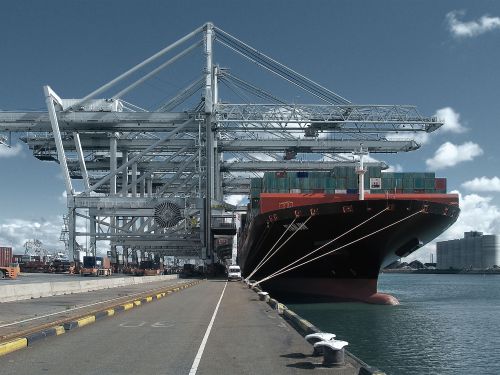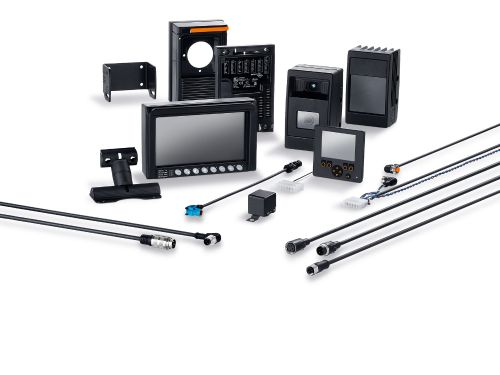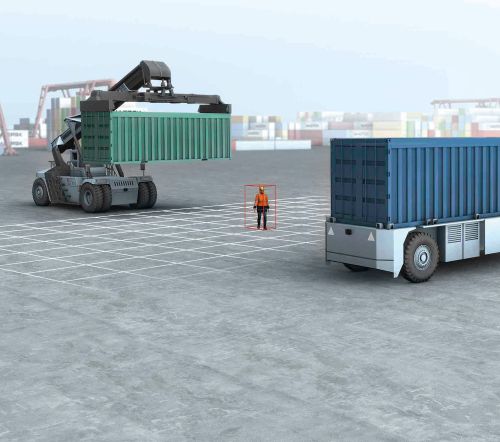Lock Eefde – predictive maintenance
Numerous global companies aim for World Class Maintenance.
The high standards in all corporate sectors lead to an improvement of all processes. These guidelines are also followed for the waterway infrastructure in the Netherlands.
There is a big demand for innovations for maintenance and infrastructure management. In the Fieldlab project "CAMINO", different parties are working together to develop applications to make maintenance of the water infrastructure 100% predictable using sensors and data analysis.
In the context of this project, the Dutch ministry "Rijkswaterstaat" and the project partner Mobilis TBI have initiated a pilot project in the lock complex in Eefde, to test and apply new or innovative technologies to get more insight into the condition of the lock itself, including its close environment. The purpose is to make maintenance of infrastructure works 100% predictable. Conventional solutions such as corrective and preventive maintenance activities are no longer sufficient.
The challenge is just-in-time maintenance
Just in time to prevent that something goes wrong, but not too early so that costs are reduced. This requires a smart approach: intelligent maintenance, for which new developments such as the use of sensor systems, data prediction models, big data and the Internet of Things (IoT) are used. ifm as provider of real-time maintenance solutions is one of the project partners.
All participants contribute with their know-how and experience in the fields of maintenance, monitoring and administration of water systems and structures, measurement and analysis techniques as well as data architecture and storage.
The purpose of the project in Eefde is to develop a "smart lock" which automatically indicates the actual condition, analyses it by means of algorithms and automatically suggests improvements of the construction or the required maintenance.
The positive development of this project at the moment is already the fact that different partners from different disciplines such as government, commercial enterprises as well as scientific institutions such as a university work together. So there is investment for everyone to develop their own solutions.
ifm is playing an important acting role in this project because they contribute a lot of knowledge of sensors, applications of these sensors in other industries and thus a lot of experience which can also be used in this context. And I am very happy with it. “
Avoid failure
The lock in Eefde assumes an important function in the region. It is the entrance from the Ijssel to the Twente Canal. Many companies rely on the canal for transport.
An unplanned interruption of the lock would cause considerable problems. The lock was built in 1933. Rijkswaterstaat (the government authority responsible for the infrastructure) wants to have a better control of the maintenance of vital plants.
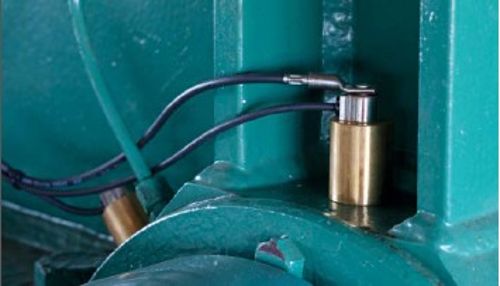
Two vibration sensors each, installed slightly shifted, permanently monitor the condition of the rotating bearings.
Permanent condition monitoring
To ensure smooth operation to open and close the lock and to avoid unplanned downtime, a condition-based maintenance solution was installed. In this respect, project partner ifm has installed a vibration diagnostic unit at the motors and gears of the lock gates. Imminent damage to the bearings leads to changed vibration characteristics. The sensors detect it and signal when threshold values have been reached. So the replacement of the components can be planned and made before a defect causes a sudden standstill.
Ruud Schoenmakers, Asset Manager Mobilis TBI, Netherlands explains:
"100% predictability, that's what we want. This means that preventive or corrective maintenance is a matter of the past. We measure all data, to optimally plan and implement the required maintenance works. We call predictive maintenance when we measure data, collect data and get information from it to carry out maintenance at the right point of time.
The right point of time is determined by a series of predictive and fixed, measurable factors such as the performance of objects, components and systems, failure characteristics, degradation behaviour, but also factors such weather conditions, water levels and availability of staff as well as operating hours of the locks. On the basis of these measurable and objective factors, we can choose the optimum point of time for the maintenance to avoid unpleasant surprises."
Before, there used to be regular maintenance. But this was expensive and could not completely minimise the risk of unplanned downtime. In addition, components the wear margin of which had not been completely used up yet, were replaced in case of doubt. That again caused unnecessarily high costs. With predictive maintenance, costs are minimised and operational reliability is maximised.
No intervention in the existing plante
It was important to the operator, to leave the historic lock complex unaffected. Therefore ifm has installed the solution without interfering with the plant or affect operation in any way. Vibration diagnostics is, so to speak, "slipped over" the plant as an autonomous system.
Besides the vibration, the temperature of the plant and the humidity are determined by means of sensors and included in the condition assessment. The measured values and the alarms are transferred to the control station via the radio gateway where the data is evaluated and analysed. Moreover, the ifm DS2505 synchronous monitor monitors the left and right chain host at the lock gate.
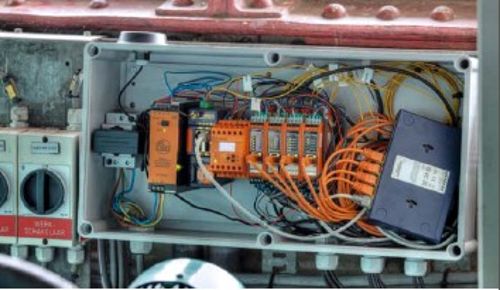
The VSE-type electronics for vibration evaluation, an ifm synchronisation monitor and the radio gateway to transfer the data to the control station, are installed in a space-saving control cabinet.
Conclusion
Vibration monitoring is only one small module in World Class Maintenance. However, on the basis of the acquired data it helps to better understand the processes, to optimise them and to use these findings for other projects in the future so that the water infrastructure becomes 100% predictable and failures are avoided.
